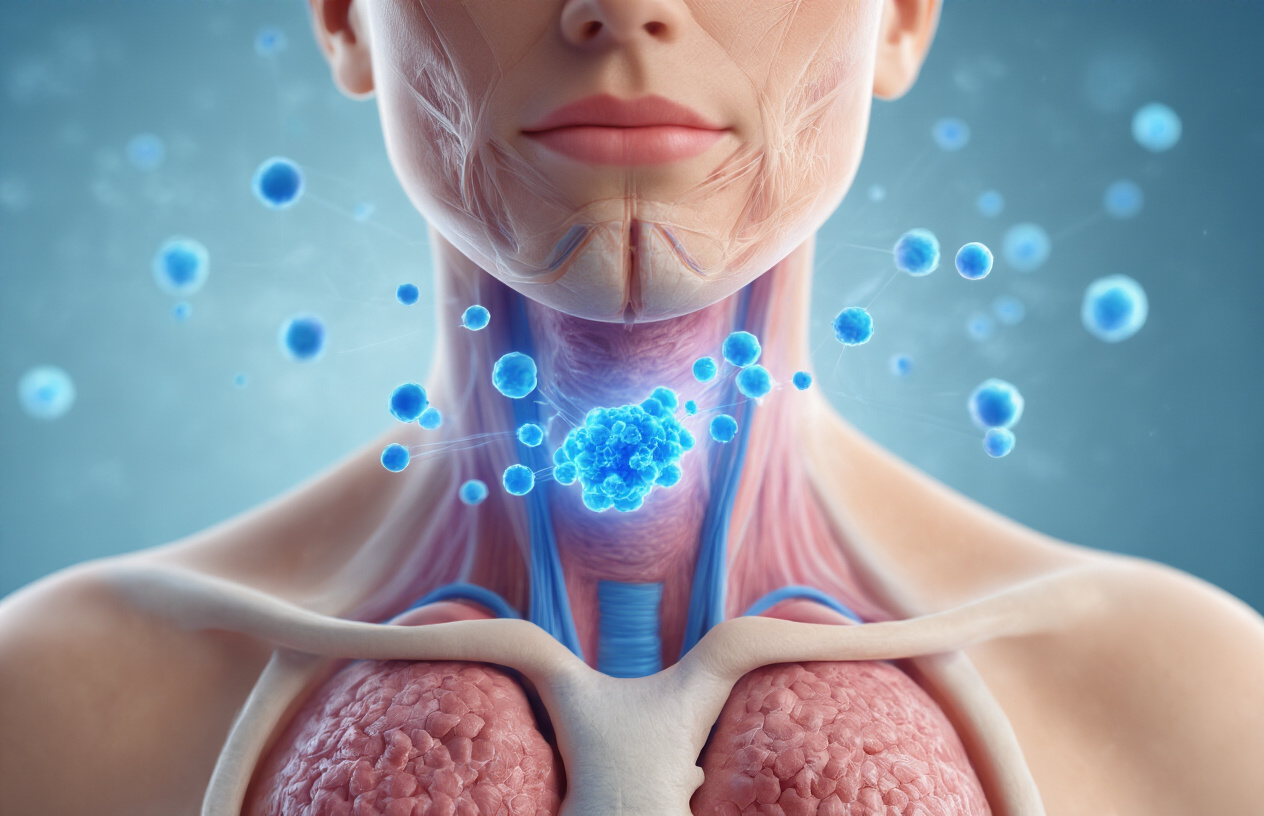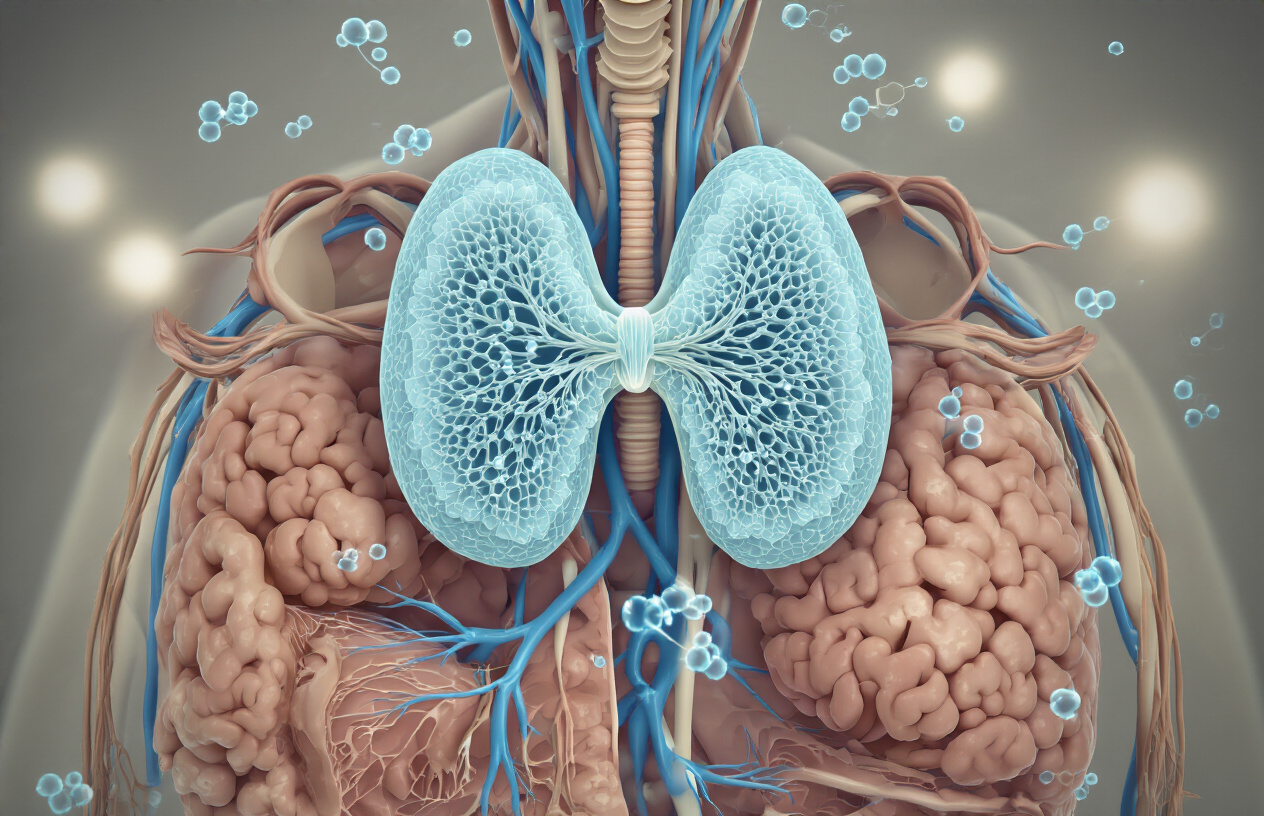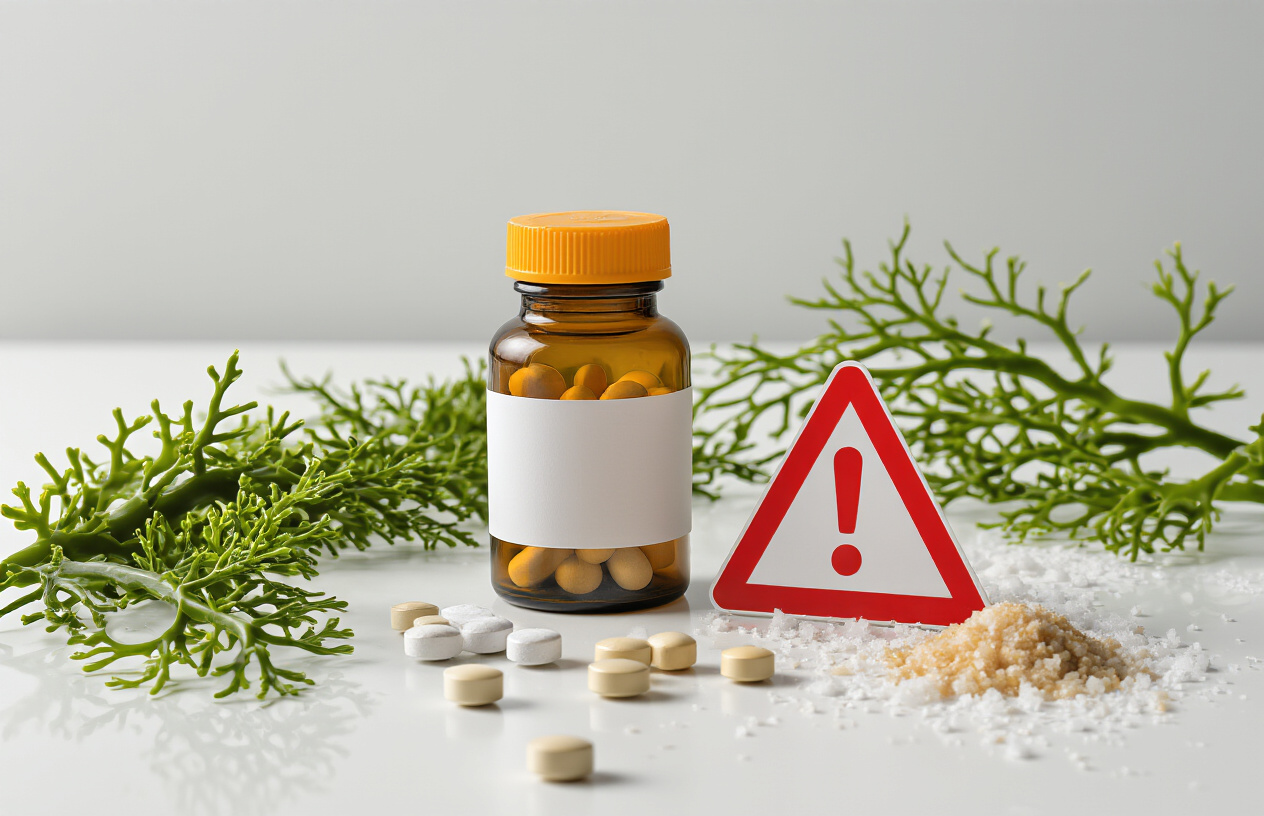Iodine: A Vital Mineral for the Body
Your thyroid depends on iodine to keep your metabolism, energy levels, and overall health on track. This essential mineral affects everything from your heart rate to your brain development, yet many people don’t get enough of it daily.
This guide is for anyone wanting to understand how iodine impacts their health and how to maintain proper levels through diet and lifestyle choices. We’ll explore how iodine directly supports your thyroid function and why this connection matters for your wellbeing. You’ll also discover the best natural food sources to meet your daily iodine needs and learn to spot the warning signs of both iodine deficiency and excess intake.
Understanding Iodine’s Essential Role in Human Health

Defining iodine as a trace mineral crucial for body function
Iodine stands out as one of the most important trace minerals your body needs to function properly. Unlike macronutrients that you need in large amounts, iodine falls into the category of micronutrients – meaning you only need tiny quantities, but those small amounts pack a powerful punch for your health.
Your body can’t produce iodine on its own, so you must get it from food sources or supplements. This makes it an essential nutrient that you absolutely have to include in your diet. Without adequate iodine intake, your body simply can’t perform several critical functions that keep you healthy and energized.
The mineral plays a starring role in hormone production, particularly thyroid hormones that control your metabolism, energy levels, and overall growth. Think of iodine as the raw material your thyroid gland needs to manufacture these vital hormones – without it, the whole system breaks down.
Explaining how iodine differs from other essential minerals
What makes iodine unique among essential minerals is its highly specialized function and concentrated storage pattern. While minerals like calcium spread throughout your bones and teeth, or iron distributes through your blood and muscles, iodine has a much more focused job description.
Your body treats iodine with remarkable selectivity. About 70-80% of all the iodine in your body gets concentrated in one small gland – your thyroid. This creates an interesting situation where a tiny organ becomes the primary hub for this essential mineral.
The absorption process for iodine also differs significantly from other minerals. Your stomach and small intestine absorb iodine quickly and efficiently, often within hours of consumption. This rapid uptake means your body can respond relatively fast to changes in iodine intake, both positive and negative.
Unlike some minerals that your body can store for months or years, iodine has a shorter residence time. Your kidneys actively regulate iodine levels by filtering excess amounts through urine, which means you need consistent daily intake to maintain optimal levels.
Identifying the body’s primary storage and usage sites for iodine
Your thyroid gland serves as the main headquarters for iodine storage and utilization. This butterfly-shaped gland at the base of your neck contains specialized cells called follicular cells that actively capture and concentrate iodine from your bloodstream.
The thyroid hoards iodine like a treasure chest, storing enough to last several weeks under normal circumstances. This storage capacity acts as a buffer system, allowing your body to maintain hormone production even when dietary iodine intake fluctuates temporarily.
Beyond the thyroid, smaller amounts of iodine find their way to other tissues throughout your body. Your salivary glands, stomach lining, and breast tissue all contain modest iodine concentrations. These secondary storage sites suggest that iodine might play additional roles beyond thyroid hormone production, though researchers are still exploring these connections.
Your muscles and skin also contain trace amounts of iodine, though these tissues use it differently than your thyroid. The distribution pattern shows that while your thyroid gets first priority for available iodine, other body systems also benefit from this essential mineral in ways scientists continue to discover.
Thyroid Function and Iodine’s Critical Connection

Supporting healthy thyroid hormone production
The thyroid gland acts like your body’s master controller, and iodine serves as its most essential fuel. This butterfly-shaped gland in your neck produces two primary hormones: thyroxine (T4) and triiodothyronine (T3). These hormones contain iodine atoms as their core components – T4 has four iodine atoms, while T3 has three. Without adequate iodine, your thyroid simply can’t manufacture these critical hormones.
Your thyroid captures iodine from your bloodstream through specialized cells called follicular cells. These cells concentrate iodine up to 30 times higher than levels found elsewhere in your body. The process begins when iodine combines with tyrosine, an amino acid, to form thyroglobulin. This protein serves as the building block for hormone production, eventually being broken down to release the finished T3 and T4 hormones into circulation.
When iodine intake drops below optimal levels, your thyroid works overtime trying to produce adequate hormones. The thyroid-stimulating hormone (TSH) from your pituitary gland increases, signaling the thyroid to grow larger and work harder. This compensation mechanism can lead to goiter formation – visible thyroid enlargement that was historically common in regions with iodine-poor soil.
Regulating metabolism and energy levels
Thyroid hormones powered by iodine control your metabolic rate like a thermostat regulates room temperature. T3 and T4 influence how quickly your cells burn calories, convert food into energy, and maintain basic bodily functions. When iodine levels support healthy thyroid hormone production, your metabolism runs smoothly and efficiently.
These hormones affect virtually every cell in your body by binding to nuclear receptors and influencing gene expression. They increase oxygen consumption, stimulate protein synthesis, and enhance the breakdown of carbohydrates and fats. Your heart rate, body temperature, and breathing patterns all respond to thyroid hormone levels, which depend directly on adequate iodine availability.
People with insufficient iodine often experience fatigue, weight gain, and feeling cold because their metabolism slows down. Their thyroid can’t produce enough hormones to maintain normal energy production at the cellular level. Conversely, when iodine intake supports optimal thyroid function, you typically feel more energetic, maintain stable body weight more easily, and have better temperature regulation.
Maintaining proper growth and development
Iodine plays a particularly crucial role during pregnancy, infancy, and childhood when rapid growth and brain development occur. Developing babies depend entirely on their mother’s iodine status during the first trimester before their own thyroid gland becomes functional around 12 weeks of pregnancy.
Thyroid hormones guide brain development, bone formation, and overall physical growth. During fetal development, inadequate iodine can result in irreversible cognitive impairments and developmental delays. Children born in areas with severe iodine deficiency historically showed significantly lower IQ scores and increased rates of learning disabilities.
Growing children need consistent iodine intake to support their rapidly developing nervous systems and achieve their full growth potential. Thyroid hormones influence the timing of growth spurts, sexual maturation, and the development of secondary sexual characteristics during adolescence. Even mild iodine deficiency during these critical periods can have lasting effects on cognitive function and physical development.
Preventing thyroid-related disorders
Adequate iodine intake serves as your first line of defense against various thyroid conditions. The most common thyroid disorders worldwide stem from iodine imbalances rather than other causes. Goiter, hypothyroidism, and hyperthyroidism can all develop when iodine levels fall outside the optimal range.
Endemic goiter affects entire populations in regions where soil and water contain insufficient iodine. Before widespread salt iodization programs, certain geographical areas – particularly mountainous regions and areas far from oceans – saw extremely high rates of thyroid enlargement and related complications.
Hashimoto’s thyroiditis, an autoimmune condition affecting the thyroid, shows interesting connections to iodine status. While severe deficiency increases risk, some research suggests that excessive iodine intake might trigger autoimmune responses in susceptible individuals. This highlights the importance of maintaining balanced iodine levels rather than simply maximizing intake.
Thyroid nodules and thyroid cancer rates also correlate with regional iodine status. Areas with chronic iodine deficiency often see higher rates of follicular thyroid cancer, while regions with adequate iodine typically have lower overall thyroid cancer incidence. Regular iodine consumption through natural food sources or iodized salt helps maintain thyroid tissue health and reduces the risk of developing these serious conditions.
Daily Iodine Requirements for Optimal Health

Meeting Recommended Dietary Allowances by Age Group
Iodine needs vary significantly across different life stages, with specific recommendations established to support healthy development and maintain optimal thyroid function. Infants require approximately 110 micrograms daily during their first year, as their rapidly developing brains depend heavily on adequate iodine for proper neurological growth.
Children aged 1-8 years need around 90 micrograms daily, while older children and adolescents aged 9-13 require 120 micrograms. Adults should aim for 150 micrograms daily, which represents the baseline requirement for maintaining healthy thyroid hormone production and metabolic function.
| Age Group | Daily Iodine Requirement |
|---|---|
| Infants (0-12 months) | 110 mcg |
| Children (1-8 years) | 90 mcg |
| Children (9-13 years) | 120 mcg |
| Adults (14+ years) | 150 mcg |
| Pregnant women | 220 mcg |
| Breastfeeding women | 290 mcg |
These recommendations account for the body’s natural iodine losses through urine and the amount needed to maintain adequate thyroid hormone synthesis. Meeting these daily targets helps prevent both deficiency-related complications and ensures optimal metabolic health across all age groups.
Understanding Increased Needs During Pregnancy and Breastfeeding
Pregnancy dramatically increases iodine demands, with requirements jumping to 220 micrograms daily. This increase supports the developing baby’s brain and nervous system, particularly during the first trimester when the fetal thyroid gland hasn’t yet formed. Maternal thyroid hormones cross the placenta and provide the only source of these critical hormones for early fetal development.
The consequences of inadequate iodine during pregnancy can be severe and lasting. Deficiency increases the risk of:
- Miscarriage and stillbirth
- Congenital hypothyroidism in newborns
- Intellectual disabilities and developmental delays
- Impaired motor skills and hearing problems
Breastfeeding mothers need even more iodine – 290 micrograms daily – because breast milk serves as the infant’s primary iodine source. The mammary glands actively concentrate iodine from maternal blood, ensuring adequate levels reach the nursing baby. Women who exclusively breastfeed may need to continue taking prenatal vitamins or specific iodine supplements to meet these elevated requirements.
Healthcare providers often recommend starting iodine supplementation before conception and continuing throughout pregnancy and breastfeeding to ensure adequate stores and prevent deficiency-related complications.
Recognizing Factors That Affect Iodine Absorption
Several dietary and environmental factors can significantly impact how well your body absorbs and uses iodine. Goitrogenic foods – including cruciferous vegetables like broccoli, cabbage, and kale – contain compounds that can interfere with iodine uptake by the thyroid gland. While these vegetables offer many health benefits, consuming large amounts raw may reduce iodine availability.
Soy products present another absorption challenge. Soy isoflavones can interfere with thyroid hormone synthesis and may require increased iodine intake to maintain optimal function. People following soy-heavy diets should pay particular attention to their iodine status.
Key factors affecting iodine absorption include:
- Timing of intake: Taking iodine supplements away from calcium, iron, or fiber supplements improves absorption
- Cooking methods: Boiling vegetables reduces their goitrogenic properties
- Soil conditions: Foods grown in iodine-poor soil naturally contain less of this mineral
- Water treatment: Some water purification systems remove iodine from drinking water
- Medications: Certain drugs, including lithium and amiodarone, can affect thyroid function and iodine metabolism
Geographic location plays a crucial role as well. Coastal areas typically have higher environmental iodine levels due to ocean spray, while inland and mountainous regions often have iodine-poor soils, making dietary sources and supplementation more important for residents in these areas.
Top Food Sources Rich in Natural Iodine

Incorporating seafood and seaweed into your diet
Ocean-based foods pack the biggest iodine punch you’ll find anywhere. Seaweed sits at the top of the list, with some varieties like kelp containing astronomical amounts – a single gram can provide several times your daily needs. If you’re new to seaweed, start small with nori sheets (the kind that wraps sushi) or sprinkle some kelp flakes on your salads.
Fish and shellfish offer excellent iodine sources too. Cod delivers around 160 micrograms per 3-ounce serving, while shrimp provides about 35 micrograms. Canned tuna works great for quick meals and contains roughly 17 micrograms per serving. Even salmon, though lower in iodine than other fish, contributes to your daily intake.
| Seafood Source | Iodine Content (per 3 oz) |
|---|---|
| Kelp | 2000+ mcg |
| Cod | 158 mcg |
| Shrimp | 35 mcg |
| Canned Tuna | 17 mcg |
| Salmon | 3-8 mcg |
Choosing iodized salt for everyday cooking
Regular table salt gets fortified with iodine in many countries, making it an easy way to meet your daily requirements. Just one-quarter teaspoon of iodized salt contains about 71 micrograms of iodine. This fortification program started in the 1920s and dramatically reduced iodine deficiency worldwide.
Check your salt label carefully – not all salts contain iodine. Sea salt, kosher salt, and fancy gourmet salts often skip the iodine addition. Stick with clearly labeled “iodized salt” for cooking and seasoning. The iodine doesn’t affect the taste, so you won’t notice any difference in your favorite recipes.
Including dairy products and eggs for consistent intake
Dairy products serve as reliable iodine sources, though amounts vary based on what the cows eat and how the milk gets processed. One cup of milk typically contains 55-85 micrograms of iodine, while yogurt provides similar amounts. Cheese offers moderate levels, with cheddar containing about 12 micrograms per ounce.
Eggs contribute decent iodine amounts too – one large egg provides roughly 24 micrograms, mostly concentrated in the yolk. The iodine content depends on the hen’s diet, so eggs from farms that feed their chickens iodine-rich supplements tend to have higher levels.
Selecting fruits and vegetables grown in iodine-rich soil
Soil iodine levels vary dramatically by location, affecting how much iodine plants absorb. Coastal areas generally have higher soil iodine due to ocean spray and proximity to seawater. Inland regions, especially those far from oceans or with heavily glaciated histories, often have iodine-poor soil.
Potatoes grown in iodine-rich soil can provide 60 micrograms per medium potato, while the same variety grown elsewhere might contain only trace amounts. Cranberries stand out as particularly good sources, with one cup providing about 400 micrograms – though this varies significantly by growing region.
Lima beans, navy beans, and strawberries can also contribute meaningful iodine amounts when grown in the right conditions. Since you can’t always know where your produce comes from, don’t rely solely on fruits and vegetables for iodine intake.
Recognizing and Addressing Iodine Deficiency

Identifying common symptoms of insufficient iodine intake
Your body gives clear signals when it’s not getting enough iodine. The most obvious sign is an enlarged thyroid gland, known as a goiter, which appears as a visible swelling at the base of your neck. This happens because your thyroid works overtime trying to produce hormones without adequate iodine.
Fatigue ranks as one of the earliest warning signs. When your thyroid can’t produce enough hormones, your metabolism slows down, leaving you feeling sluggish and exhausted even after a full night’s sleep. Weight gain often follows, despite no changes to your diet or exercise routine.
Mental fog and difficulty concentrating become increasingly common as iodine levels drop. Many people describe feeling like their thoughts move through molasses. Memory problems can develop, making it hard to recall names, appointments, or important details.
Physical symptoms extend beyond tiredness. Your skin may become dry and flaky, while your hair turns brittle and starts thinning. Cold intolerance develops – you’ll find yourself reaching for sweaters when others feel comfortable. Constipation becomes more frequent as your digestive system slows along with your metabolism.
Women often experience irregular menstrual cycles or heavier periods than usual. Both men and women may notice decreased libido. Depression and mood swings can emerge, creating a cycle where physical symptoms affect mental health and vice versa.
Understanding health risks of prolonged deficiency
Long-term iodine deficiency creates serious health complications that extend far beyond the initial symptoms. Hypothyroidism develops as your thyroid gland completely fails to meet your body’s hormone demands. This condition affects every organ system, slowing down vital processes throughout your body.
Cardiovascular health takes a significant hit when iodine deficiency persists. Your heart rate slows, blood pressure may increase, and cholesterol levels often rise dangerously high. These changes dramatically increase your risk of heart disease and stroke over time.
Cognitive decline accelerates with severe iodine deficiency. Research shows that adults with chronic deficiency score lower on IQ tests and experience memory problems that can become permanent. The brain depends heavily on thyroid hormones for optimal function, and prolonged deficiency can cause irreversible damage.
Pregnancy complications become life-threatening when expectant mothers lack adequate iodine. Severe deficiency can cause miscarriage, stillbirth, or congenital abnormalities. Babies born to iodine-deficient mothers face increased risks of cretinism, a condition causing severe intellectual disability and stunted physical development.
Fertility problems affect both sexes with chronic iodine deficiency. Women may struggle to conceive, while men often experience reduced sperm quality and testosterone levels. The reproductive system requires proper thyroid function to operate normally.
Immune system weakness develops over time, making you more susceptible to infections and slower to recover from illnesses. Your body’s ability to regulate temperature, heal wounds, and fight off pathogens all depend on adequate thyroid hormone levels.
Assessing your personal risk factors
Certain groups face higher risks of developing iodine deficiency based on lifestyle, geography, and dietary patterns. Understanding these risk factors helps you take proactive steps to protect your health.
Geographic location plays a major role in iodine availability. Areas far from the ocean typically have iodine-depleted soil, which means locally grown foods contain minimal amounts. Mountain regions, the Great Lakes area, and inland river valleys historically showed higher deficiency rates before iodized salt became widespread.
Dietary restrictions significantly increase your risk. Vegans and vegetarians who avoid seafood and dairy products – two primary iodine sources – often struggle to meet their daily needs. People following salt-restricted diets for blood pressure management may also fall short if they don’t find alternative iodine sources.
Pregnancy and breastfeeding double your iodine requirements. Growing babies need iodine for proper brain and nervous system development, pulling from your body’s stores. Women who have been pregnant multiple times or breastfeed for extended periods face particularly high risks.
Age affects iodine needs differently across life stages. Infants and young children require adequate iodine for normal growth and development. Older adults may absorb iodine less efficiently and often take medications that interfere with thyroid function.
Medical conditions and medications create additional complications. Autoimmune thyroid diseases like Hashimoto’s thyroiditis can worsen with iodine deficiency. Certain medications, including lithium and some heart medications, interfere with iodine absorption or thyroid function.
Food processing and preparation methods in your household matter too. Excessive washing of iodized salt or storing it in humid conditions reduces its iodine content over time.
Getting proper testing and medical evaluation
Accurate diagnosis requires professional medical testing since iodine deficiency symptoms overlap with many other conditions. Your doctor can determine whether your symptoms stem from inadequate iodine intake or other health issues requiring different treatments.
Urine testing provides the most reliable method for assessing iodine status. A 24-hour urine collection gives the most accurate picture, though spot urine tests can offer useful information. Normal levels should exceed 100 micrograms per liter, while levels below 50 indicate moderate deficiency.
Thyroid function tests measure how well your thyroid responds to current iodine levels. Blood tests checking TSH (thyroid-stimulating hormone), T3, and T4 levels reveal whether your thyroid produces adequate hormones. Elevated TSH combined with low T3 and T4 often indicates iodine deficiency.
Physical examination includes checking for goiter and other visible signs. Your doctor will feel your neck area for thyroid enlargement and assess your reflexes, which slow down with hypothyroidism. They’ll also evaluate your skin texture, hair quality, and overall appearance for deficiency signs.
Blood tests can rule out other conditions that mimic iodine deficiency. Anemia, vitamin D deficiency, and depression all share similar symptoms. Complete blood counts and comprehensive metabolic panels help distinguish between these possibilities.
Thyroid antibody tests become necessary if autoimmune conditions are suspected. Some people have thyroid problems unrelated to iodine intake, requiring different treatment approaches. These tests prevent misdiagnosis and inappropriate supplementation.
Follow-up testing tracks your progress after treatment begins. Your doctor will recheck your levels after several weeks of iodine supplementation to ensure proper dosing and monitor for potential complications from too much iodine intake.
Avoiding Iodine Excess and Potential Toxicity

Understanding the dangers of consuming too much iodine
While iodine deficiency gets most of the attention, getting too much iodine can be just as problematic for your health. Your thyroid gland, which normally thrives on adequate iodine intake, can actually become overwhelmed when exposed to excessive amounts. This overload can trigger a protective mechanism called the Wolff-Chaikoff effect, where your thyroid temporarily shuts down hormone production to protect itself from damage.
Consuming more than 1,100 micrograms of iodine daily can push your body into dangerous territory. Chronic overconsumption can lead to thyroid inflammation, goiter development, and paradoxically, both hyperthyroidism and hypothyroidism. Your immune system may also react negatively, potentially triggering autoimmune thyroid conditions like Hashimoto’s thyroiditis or Graves’ disease in susceptible individuals.
Certain populations face higher risks from iodine excess. People with existing thyroid conditions, those taking thyroid medications, and individuals with autoimmune disorders should be particularly cautious. Pregnant women need to balance their increased iodine needs carefully, as excess amounts can affect fetal thyroid development.
Recognizing symptoms of iodine overdose
Iodine toxicity symptoms can be sneaky because they often mimic other health issues. The most common early signs include a metallic taste in your mouth, increased saliva production, and throat irritation. You might also notice burning sensations in your mouth and throat, along with stomach pain and diarrhea.
As iodine levels climb higher, more serious symptoms emerge:
- Thyroid-related symptoms: Rapid or irregular heartbeat, anxiety, tremors, weight loss or gain, fatigue, and sleep disturbances
- Skin reactions: Acne-like eruptions, hives, or skin rash, particularly around the mouth and nose
- Respiratory issues: Runny nose, headaches, and in severe cases, difficulty breathing
- Gastrointestinal problems: Nausea, vomiting, abdominal pain, and metallic taste that won’t go away
Severe iodine poisoning can cause fever, delirium, and cardiovascular complications. If you experience multiple symptoms after taking iodine supplements or consuming large amounts of iodine-rich foods, seek medical attention promptly.
Making safe supplementation choices
Smart supplementation starts with understanding your actual needs. Most people living in countries with iodized salt don’t require additional iodine supplements unless specifically recommended by their healthcare provider. Before starting any iodine supplement, get your thyroid function tested and discuss your individual risk factors with a medical professional.
When choosing supplements, quality matters enormously. Look for products that have been third-party tested and provide clear dosage information. Avoid mega-dose supplements that contain several times the recommended daily allowance. Kelp and seaweed supplements can be particularly unpredictable since their iodine content varies wildly depending on growing conditions and processing methods.
| Safe Supplementation Guidelines | Daily Limits |
|---|---|
| Adults (non-pregnant) | 150 mcg |
| Pregnant women | 220 mcg |
| Breastfeeding women | 290 mcg |
| Upper safe limit | 1,100 mcg |
Start with the lowest effective dose and monitor your body’s response. Keep a symptom diary to track any changes in energy, mood, or physical symptoms. Regular thyroid function tests can help catch problems early before they become serious health issues.
Remember that consistency beats mega-dosing every time. Your thyroid prefers steady, moderate amounts of iodine rather than dramatic spikes followed by periods of deficiency.

Iodine plays a crucial role in keeping your thyroid healthy and your metabolism running smoothly. Getting the right amount through iodine-rich foods like seafood, dairy products, and iodized salt helps prevent deficiency-related health issues while supporting your body’s energy production and growth. The key is finding that sweet spot between too little and too much – both can cause problems you definitely want to avoid.
Make sure you’re getting enough iodine in your daily diet, but don’t go overboard with supplements unless your doctor recommends them. Pay attention to what you’re eating and consider having your iodine levels checked if you notice symptoms like fatigue, weight changes, or neck swelling. Your thyroid will thank you for giving it the iodine it needs to keep you feeling your best.














